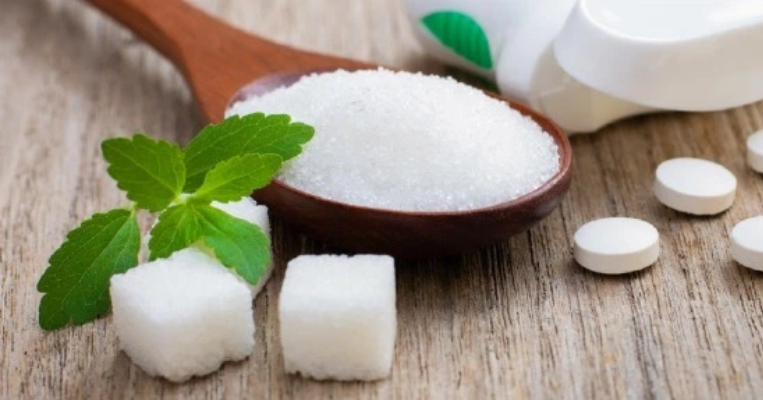







Content Menu
● Health Benefits of Saccharin
● Saccharin Safety and Regulatory Status
● Potential Risks and Controversies
● Saccharin in Food and Pharmaceutical Applications
● Environmental and Manufacturing Considerations
● Frequently Asked Questions (FAQ)
>> 1. What is saccharin and how is it used?
>> 2. Is saccharin safe for long-term consumption?
>> 3. Does saccharin cause cancer?
>> 4. Can saccharin affect gut health?
>> 5. How does saccharin compare with other sweeteners?
Saccharin, one of the oldest and most widely used artificial sweeteners, has been a topic of debate and research for over a century. Known for its intense sweetness—approximately 300 to 400 times sweeter than sugar—it is a popular choice for those aiming to reduce calorie intake or manage blood sugar levels. But the question remains: Is saccharin good for you? This article delves into the science behind saccharin, its health benefits, potential risks, and practical uses, aiming to provide a clear understanding for consumers and manufacturers alike.

Saccharin is a calorie-free synthetic sweetener discovered in 1879. It is commonly used in food, beverages, pharmaceuticals, and dietary products as a sugar substitute. Its intense sweetness means only very small amounts are needed to achieve the desired taste, making it cost-effective and calorie-efficient. Due to its stability at high temperatures, saccharin is also suitable for cooking and baking.
One primary benefit of saccharin is its zero-calorie profile, which aids in weight management and calorie control. For individuals with diabetes, saccharin offers a sweetening alternative without raising blood sugar levels, supporting glucose regulation. Additionally, saccharin does not contribute to tooth decay since it is non-cariogenic, which benefits dental health.
Studies have shown that saccharin can be a useful part of a diet designed to lower sugar intake and combat obesity. Replacing sugar with saccharin in beverages or processed foods helps reduce overall caloric consumption, which can contribute to weight loss or maintenance when paired with a healthy lifestyle.
The safety of saccharin has been evaluated by numerous health authorities including the U.S. Food and Drug Administration (FDA), the European Food Safety Authority (EFSA), and the World Health Organization (WHO). While early studies in the 1970s raised concerns about saccharin and bladder cancer in laboratory rats, subsequent research found these results not applicable to humans. Modern reviews conclude saccharin is safe for human consumption within established acceptable daily intake (ADI) levels.
Currently, ADI for saccharin is set at 5 mg per kilogram of body weight per day by EFSA, which is considered a safe threshold for chronic intake. Regulatory bodies have removed warning labels previously required on saccharin-containing products, reflecting its recognized safety.

Despite its approval, some controversies and concerns about artificial sweeteners like saccharin remain. Some observational studies have linked artificial sweetener consumption to altered gut microbiota, metabolic changes, and even increased appetite or glucose intolerance in certain individuals.
Long-term consumption effects still require further investigation to understand the full health impact. There is also ongoing research into associations between artificial sweeteners and cognitive aging, though definitive causal links have yet to be established.
Individuals with a sensitivity to saccharin or other chemical additives may experience allergic reactions, though such cases are rare. As with any food additive, moderation is advised.
In the food industry, saccharin is often combined with other sweeteners like aspartame or sucralose to create blended sweetening systems that mimic sugar's taste while reducing off-flavors. This flexibility enhances product formulation in beverages, dairy products, baked goods, and tabletop sweeteners.
In pharmaceuticals, saccharin's role extends beyond taste to improving patient compliance with medications by masking bitter flavors in tablets and syrups. Companies focusing on natural and functional ingredients may find saccharin a reliable component within their formulation palette, especially in low-calorie and diabetic-friendly products.
Saccharin is synthesized via chemical processes that have been refined for efficiency and environmental safety. Manufacturers committed to sustainable practices are increasingly prioritizing green chemistry principles in saccharin production, aligning with consumer demand for responsible food ingredients.
Additionally, saccharin's stability and long shelf life contribute to less waste in supply chains, further supporting sustainable manufacturing.
Saccharin, as an artificial sweetener, presents a combination of benefits and considerations. It provides a calorie-free sweetness beneficial for weight management, diabetes control, and dental health. Scientific assessments from global regulatory bodies uphold its safety when consumed within recommended limits. However, potential effects on metabolism and gut health warrant cautious consumption and further study.
For those seeking to reduce sugar intake without sacrificing sweetness, saccharin remains a valuable ingredient in foods, beverages, and pharmaceuticals. As with all additives, moderation and awareness are key. Incorporating saccharin as part of a balanced diet and healthy lifestyle can be good for you.

Saccharin is a zero-calorie artificial sweetener used to replace sugar in foods, beverages, and medications. It is approximately 300-400 times sweeter than sugar and helps reduce caloric intake without affecting blood sugar levels.
Yes, regulatory authorities such as the FDA and EFSA consider saccharin safe when consumed below the acceptable daily intake of 5 mg per kilogram of body weight. Long-term studies support its safety for the general population.
Early animal studies suggested a link between saccharin and bladder cancer, but these findings are not applicable to humans. Comprehensive reviews and current regulatory positions classify saccharin as non-carcinogenic to humans.
Some research indicates artificial sweeteners, including saccharin, might alter gut microbiota and metabolic responses in susceptible individuals. However, evidence is not conclusive and more studies are needed to understand these effects fully.
Saccharin is much sweeter than sugar and many other sweeteners, stable at high temperatures, and calorie-free. It is often used in combination with other sweeteners to improve taste and avoid bitter aftertaste common to some alternatives.
Top Nutritional Supplement Manufacturers And Suppliers in Indonesia
Top Nutritional Supplement Manufacturers And Suppliers in India
Top Nutritional Supplement Manufacturers And Suppliers in Germany
Top Nutritional Supplement Manufacturers And Suppliers in France
Top Nutritional Supplement Manufacturers And Suppliers in Canada
